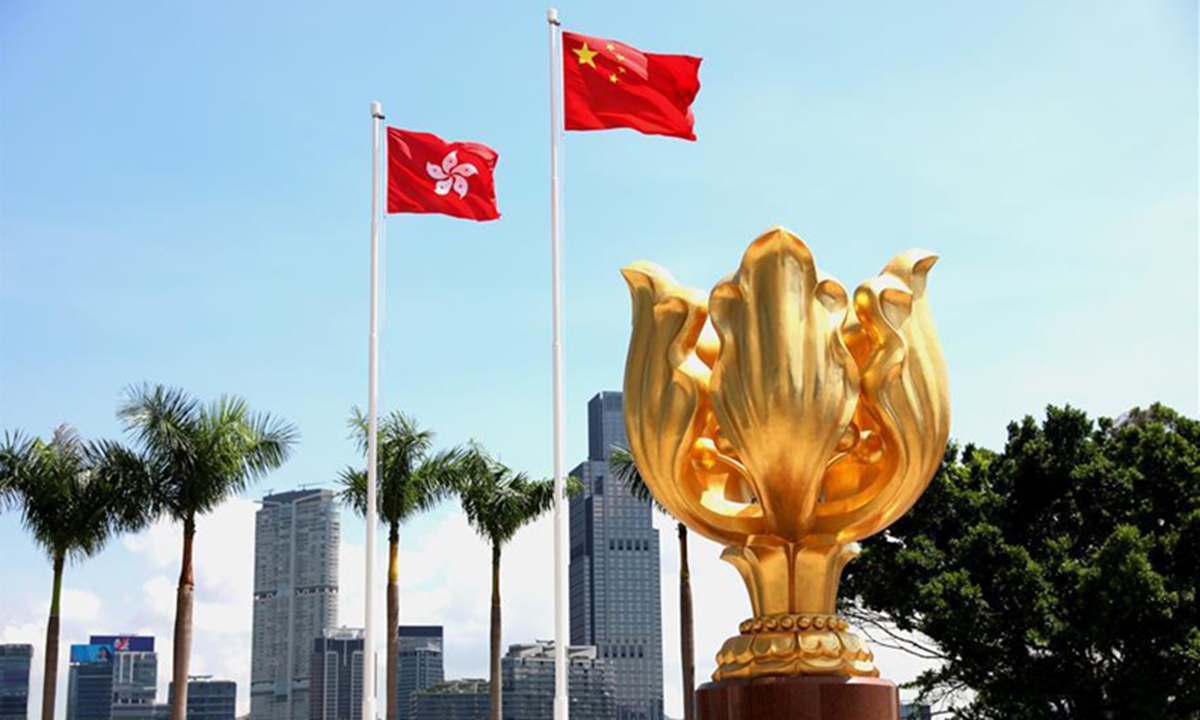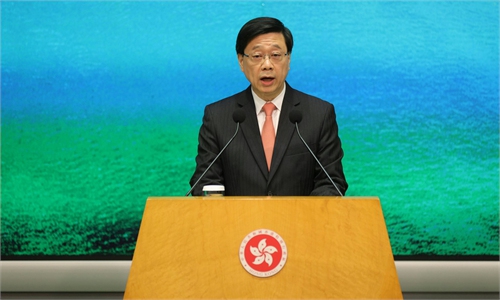China slams 'unfounded' comments by British Foreign Secretary Cameron on HKSAR Article 23 legislation

Hong Kong file photo
China slammed comments made by British Foreign Secretary David Cameron on the Article 23 legislation of the Basic Law of the Hong Kong Special Administrative Region (HKSAR) as "unfounded" and kindly reminded UK that it has no sovereignty, no governance, and no supervisory power over Hong Kong after its return to the motherland.
A spokesperson for Commissioner's Office of China's Foreign Ministry in the Hong Kong SAR on Thursday expressed dissatisfaction and firm opposition to individual politicians such as Cameron who have made unfounded attacks on the Article 23 legislation of the Basic Law, maliciously tarnishing and attacking Hong Kong's human rights, freedoms, and rule of law.
The HKSAR government has conducted a public consultation on the Article 23 legislation of the Basic Law from January 30 to February 28.
The enactment of the Article 23 legislation is the responsibility of the SAR government to uphold national security, implement the Basic Law of Hong Kong, relevant decisions of the National People's Congress, and the National Security Law for Hong Kong, said the spokesperson. It is also an urgent requirement to ensure the long-term stability of Hong Kong and the steady progress of the "one country, two systems" principle, the spokesperson noted on the Thursday's statement.
Only by expediting the Article 23 legislation as soon as possible and building a strong barrier to safeguard national security can Hong Kong focus on economic development and better leverage its unique status and advantages to deepen cooperation with countries and regions around the world, the spokesperson said.
The SAR government has carefully organized multiple explanatory sessions on the Article 23 legislation of the Basic Law when soliciting public opinions, clearly stating that one of the principles of the Article 23 legislation of the Basic Law is to respect and safeguard human rights, and to protect the rights and freedoms enjoyed by Hong Kong residents in accordance with the relevant provisions of the Hong Kong Basic Law and the International Covenant on Civil and Political Rights and the International Covenant on Economic, Social and Cultural Rights, the spokesperson noted.
The spokesperson also highlighted that when formulating provisions related to criminal offenses, it will target precisely behaviors that endanger national security, clearly defining the elements and penalties of the relevant offenses, and clearly delineating the boundaries between normal business transactions and external exchanges, so that law-abiding individuals do not have to worry about falling into the net of justice.
The spokesperson stated that after the return of Hong Kong to the motherland, the legal basis for the Chinese government to govern the SAR is the Chinese Constitution and the Basic Law of Hong Kong, not the China-British Joint Declaration. The British side has no sovereignty, no governance, and no supervisory power over Hong Kong after its return.
Politicians and media outlets across a number of countries, including the UK, stubbornly hold biases against China and Hong Kong, believing that the wide coverage and strict regulation of laws related to national security in their own countries are justified. However, they are obsessed with interpreting Article 23 of the Basic Law through a "filter," deliberately juxtaposing national security against rights and freedoms, the spokesperson said, slamming their behaviors as a slander with ulterior motives and hypocritical double standards.
The spokesperson for Chinese Embassy to the UK also made a response on Thursday, saying that the Declaration does not give the British side any qualification or right to interfere in Hong Kong affairs.
"Hong Kong has long returned to China…We urge the British side to recognize the situation, adjust their mindset, and do more things that are beneficial to the development of China-British relations," the embassy spokesperson noted.
Instead, the concept of the UK's National Security Law is vague and grants broad authorization to law enforcement agencies, making it prone to abuse. The UK should reflect on itself instead of meddling in other countries' affairs, the embassy spokesperson stated.
Global Times



